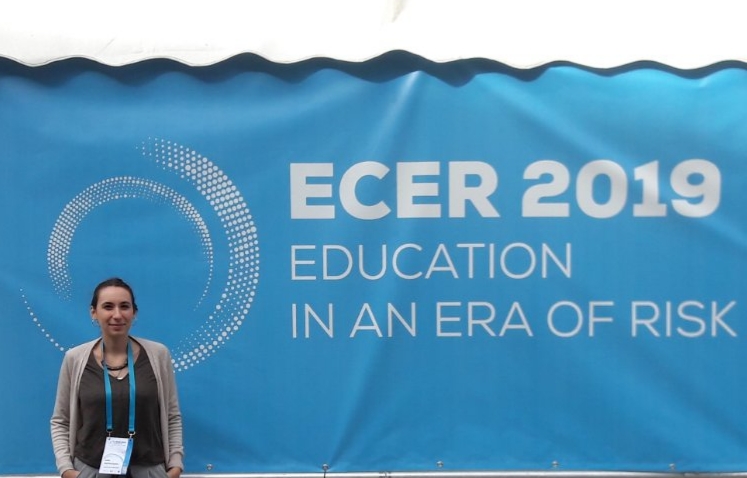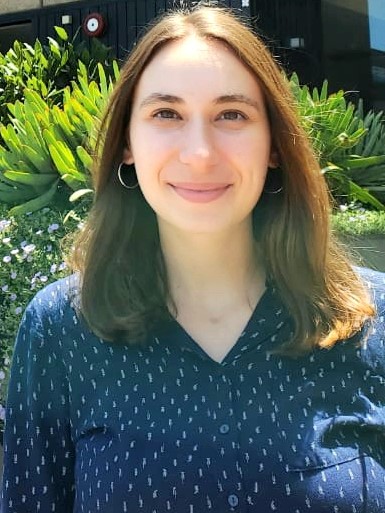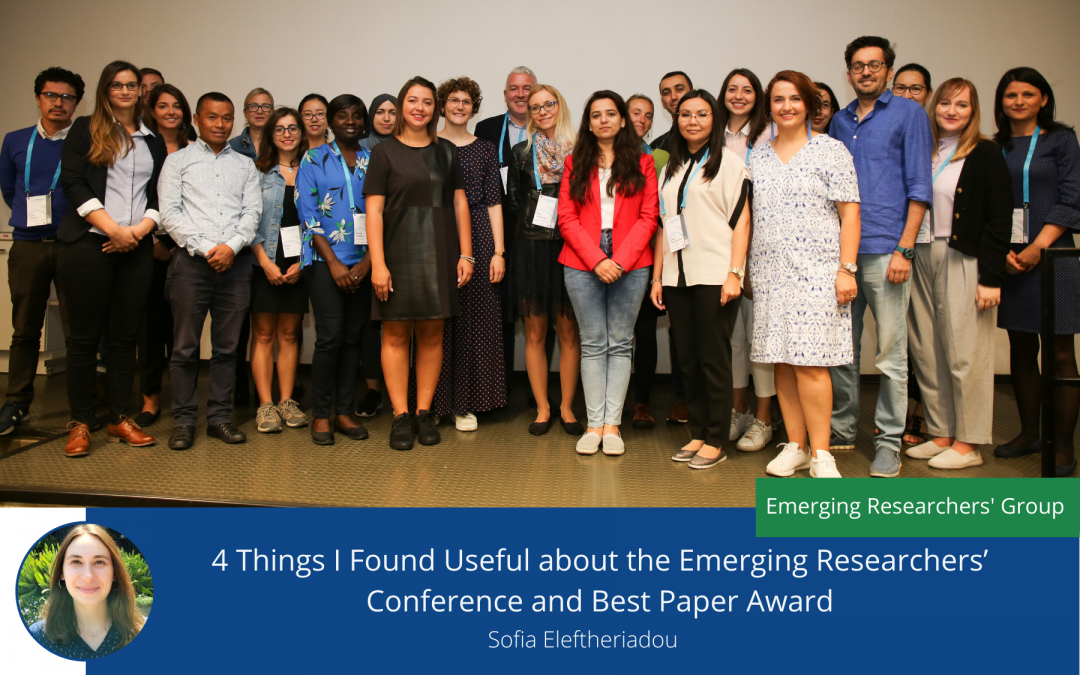Sofia Eleftheriadou received the ERG Best Paper Award 2019 for her paper titled “Conceptualisation and measurement of collaborative problem solving: a systematic review of the literature” following an extensive assessment process conducted within the Emerging Researchers’ Group. A short description of the paper can be found here.
We asked Sofia to share her experience from participating in the Emerging Researchers’ Conference and the Best Paper Award competition, reflecting on what she personally found useful as well as what she thinks other emerging researchers might want to know about the process.
Emerging Researchers’ Conference

In September 2019, I presented my paper at the Emerging Researchers’ Conference (ERC) which took place just before the European Conference for Educational Research in Hamburg. The participants and the audience in that conference were mainly early career researchers, some currently undertaking their doctorates, so I found it very encouraging to discuss preliminary findings from my research with them.
During ERC there were many workshops designed particularly for emerging researchers, such as academic writing, as well as workshops for specific fields of research, such as gender and education, offering great opportunities for professional development. Since these workshops were tailored to the needs of early career researchers, I found that they were the best place to ask questions about publishing, careers in academia, etc.
I also attended the Emerging Researchers’ Group meeting where participants were introduced to the Link Convenor and Co-Convenors. The meeting informed us about the activities offered within the group with the aim of promoting emerging researchers. One of those was the Best Paper Award competition. At the end of the meeting, there was plenty of time for discussion, where emerging researchers could offer suggestions for activities that they would like to see being developed in the future.
Best Paper Award Assessment Process

Following the Emerging Researchers’ Conference, I decided to submit my paper for consideration to the Best Paper Award competition. These are the four things that I found useful for my professional development as an emerging researcher currently undertaking doctorate research.
The timeframe
I found that the timeframe of the competition worked well in terms of giving me a structure as well as motivation to develop a full paper. Submission of the full paper was planned two months after the conference. Reviewers then provided their feedback and we were given another two months to develop the paper, addressing reviewers’ comments and re-submitting for final consideration.
Reviewers’ comments
Feedback received from reviewers was focused on three aspects: the significance of the contribution to studies in European Educational Research, the clarity of presentation, and the fulfilment of international scientific research standards. The comments I received were first, very encouraging, highlighting the positive aspects of my contribution and second, well-targeted, giving specific directions on the ways that I could work on expanding and enriching my research.
Length of submission
Manuscripts considered for the award could be up to 7,000 words in length. As an emerging researcher, only my supervisors had so far read such long pieces of writing from my research, so I considered this a great way of getting feedback in something that will eventually be included in my thesis.
Practice writing in journal article style
Finally, preparing my submission was also a good exercise in turning a thesis chapter into a journal article. To do this, I had to carefully consider what information to include for my manuscript to stand alone as a body of work. What I found helpful was having in mind the reviewer or any reader unfamiliar with my research, who should be able to read my articles and understand its contribution without requiring additional information from my thesis.

Sofia Eleftheriadou
Third year PhD candidate at the Manchester Institute of Education, University of Manchester, UK
Sofia Eleftheriadou is a third year PhD candidate at the Manchester Institute of Education, University of Manchester, UK. She holds a studentship from the UK Economic and Social Research Council (ESRC). In her thesis, she is examining the validity of students’ responses to a collaborative problem-solving test used in the Programme for International Student Assessment (PISA). She has recently completed an internship at the Australian Council for Educational Research (ACER), where she worked on assessment development. She has previously worked as a research assistant in projects related to students’ mathematics anxiety and performance, and as a teaching assistant in postgraduate taught units at the University of Manchester.
Sofia’s university researcher profile can be found here. Find her on Twitter.

